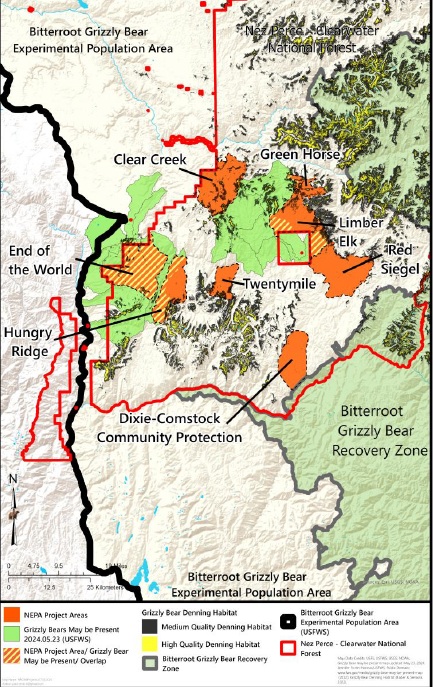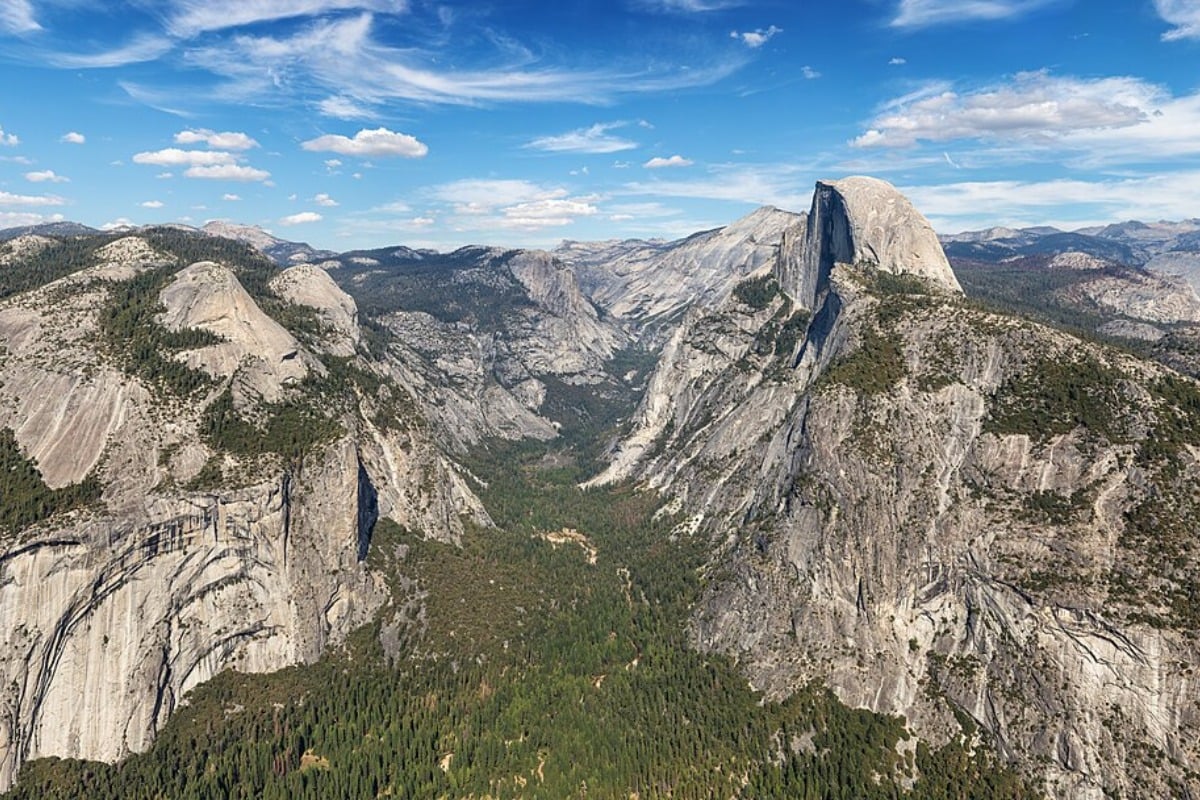UPDATE: A local conservation group has just filed a lawsuit against the U.S. Forest Service, claiming that ongoing and future timber sales in north central Idaho threaten vital grizzly bear habitats and ancient forests. The Moscow-based Friends of the Clearwater initiated the legal action in the Idaho District Court on October 3, seeking immediate intervention to halt six new and two ongoing timber projects within the Nez Perce-Clearwater National Forest.
This lawsuit arrives at a critical juncture, emphasizing the potential harm to the environment and wildlife. The group argues that the timber projects violate multiple federal laws, including the National Environmental Policy Act and the Endangered Species Act, designed to protect threatened species and ecosystems.
“Logging proponents and the Trump administration believe private profits are more important than the public interest in wildlife habitat,” stated Jeff Juel, policy director for Friends of the Clearwater. This sentiment underscores the growing tension between development and conservation efforts in the region.
The contested projects—specifically named the Clear Creek, Green Horse, Red Siegel, Limber Elk, Twentymile, Dixie-Comastock, Hungry Ridge, and End of the World—include extensive clearcutting, with some areas exceeding 200 acres and one project approaching 800 acres. The lawsuit contends that these actions will fragment crucial grizzly bear habitats, which are already classified as threatened under the ESA.
According to the group, the logging operations will necessitate the construction of 80 miles of new roads, disrupting the landscape and further threatening wildlife. The cumulative impact of the logging is projected to result in 25 square miles of clearcuts, significantly impacting the local ecosystem.
Forest Service documentation indicates that these projects aim to thin overgrown forests to reduce fire risks while supplying millions of board feet of timber to local mills. For instance, the End of the World project is estimated to yield 144 million board feet, while the adjacent Hungry Ridge project could produce 177 million board feet.
In the past, the Forest Service has highlighted the economic benefits of such logging activities, citing a study from the University of Idaho that claims 30 jobs are either sustained or created for every 1 million board feet of timber harvested. However, environmental advocates argue that these short-term economic gains come at an unacceptable cost to the long-term health of Idaho’s forests and wildlife.
The Forest Service’s press office declined to comment on the ongoing litigation, directing inquiries to the U.S. Department of Justice, which traditionally refrains from discussing active legal matters.
As this lawsuit unfolds, the immediate future of Idaho’s timber projects hangs in the balance, raising vital questions about environmental stewardship and the values that guide land management in the face of economic pressures. The Friends of the Clearwater are adamant that halting these timber projects is essential to preserving not only the grizzly bear population but also the integrity of Idaho’s old-growth forests.
Stay tuned for further updates as this situation develops rapidly.







